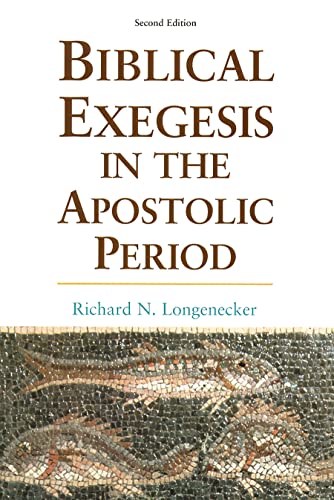This further volume of the Cambridge Bible Commentary, based on the NEB, follows the now familiar pattern of the series. In view of the rapidly escalating cost of printing it does seem regrettable that the actual text of Scripture, which is usually available to the average reader, is incorporated, as this further exposes the limitations of the series. Approximately one-fifth is taken up with the biblical text, which, in a volume of this size, leaves insufficient space for an adequate discussion of important issues. Only fifteen pages of introduction are included, for example, and whilst 1250–1000 bc is noted as the period of the Judges, there is no full discussion of these dates. On the positive side, the five maps included are well situated and illustrate clearly the specific periods involved. There is also a note on further reading and a comprehensive index.
The publisher’s blurb speaks of ‘the word of God revealed in the events of Israel’s past’. But again and again the author calls into question the historicity of the events noted in the book of Judges: the second appendix is seen as ‘the product of very late editing after the exile’ (p. 7); it is deemed ‘doubtful if there are any historical facts of any significance’ behind the Samson narratives (p. 7)—incidentally the old view that these are strongly influenced by sun mythology is again revived; ‘It is doubtful whether the offer (to Gideon) and rejection of the kingship corresponds to any historical reality’ (p. 108) and the Deuteronomist is made responsible for Jotham’s fable, which he uses to pass a comment on the institution of kingship. The view of ancient Israel as an amphictyony is rejected (e.g. pp. 10, 11) but the strong positive evidence for its existence is not dealt with. Does the book of Joshua really give a consistent picture of a total conquest of Palestine under the leadership of Joshua (p. 40)? It may be that the author is battling against the limitations of space, but such statements are frequently made without comprehensive discussion. In a book which claims to be objective no consideration whatever is given to modern conservative/traditional scholarship. And apart from the final paragraph of the book the reader seeking devotional or spiritual counsel from this portion of the Word of God will receive scant return for his investment.
Within the limitations of space and the viewpoint of critical scholarship this is a workmanlike volume, but one cannot but question how far such an approach is responsible for the almost total disregard of the Old Testament in our century.
A. E. Cundall
London Bible College






